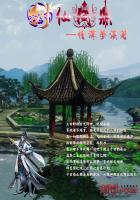(Jan, 1830)
Sir Thomas More; or, colloquies on the Progress and Prospects of Society.By ROBERT SOUTHEY Esq., LL.D., Poet Laureate.2 vols.
8vo.
London: 1829.
IT would be scarcely possible for a man of Mr.Southey's talents and acquirements to write two volumes so large as those before us, which should be wholly destitute of information and amusement.Yet we do not remember to have read with so little satisfaction any equal quantity of matter, written by any man of real abilities.We have, for some time past, observed with great regret the strange infatuation which leads the Poet Laureate to abandon those departments of literature in which he might excel, and to lecture the public on sciences of which he has still the very alphabet to learn.He has now, we think, done his worst.The subject which he has at last undertaken to treat, is one which demands all the highest intellectual and moral qualities of a philosophical statesman, an understanding at once comprehensive and acute, a heart at once upright and charitable.Mr.Southey brings to the task two faculties which were never, we believe, vouchsafed in measure so copious to any human being, the faculty of believing without a reason, and the faculty of hating without a provocation.
It is, indeed, most extraordinary, that a mind like Mr.
Southey's, a mind richly endowed in many respects by nature, and highly cultivated by study, a mind which has exercised considerable influence on the most enlightened generation of the most enlightened people that ever existed, should be utterly destitute of the power of discerning truth from falsehood.Yet such is the fact.Government is to Mr.Southey one of the fine arts.He judges of a theory, of a public measure, of a religion or a political party, of a peace or a war, as men judge of a picture or a statue, by the effect produced on his imagination.Achain of associations is to him what a chain of reasoning is to other men; and what he calls his opinions are in fact merely his tastes.
Part of this description might perhaps apply to a much greater man, Mr.Burke.But Mr.Burke assuredly possessed an understanding admirably fitted for the investigation of truth, an understanding stronger than that of any statesman, active or speculative, of the eighteenth century, stronger than everything, except his own fierce and ungovernable sensibility.Hence he generally chose his side like a fanatic, and defended it like a philosopher.His conduct on the most important occasions of his life, at the time of the impeachment of Hastings for example, and at the time of the French Revolution, seems to have been prompted by those feelings and motives which Mr.Coleridge has so happily described,"Stormy pity, and the cherish'd lure Of pomp, and proud precipitance of soul."Hindostan, with its vast cities, its gorgeous pagodas, its infinite swarms of dusky population, its long-descended dynasties, its stately etiquette, excited in a mind so capacious, so imaginative, and so susceptible, the most intense interest.
The peculiarities of the costume, of the manners, and of the laws, the very mystery which hung over the language and origin of the people, seized his imagination.To plead under the ancient arches of Westminster Hall, in the name of the English people, at the bar of the English nobles for great nations and kings separated from him by half the world, seemed to him the height of human glory.Again, it is not difficult to perceive that his hostility to the French Revolution principally arose from the vexation which he felt at having all his old political associations disturbed, at seeing the well-known landmarks of states obliterated, and the names and distinctions with which the history of Europe had been filled for ages at once swept away.He felt like an antiquary whose shield had been scoured, or a connoisseur who found his Titian retouched.But, however he came by an opinion, he had no sooner got it than he did his best to make out a legitimate title to it.His reason, like a spirit in the service of an enchanter, though spell-bound, was still mighty.It did whatever work his passions and his imagination might impose.But it did that work, however arduous, with marvellous dexterity and vigour.His course was not determined by argument; but he could defend the wildest course by arguments more plausible than those by which common men support opinions which they have adopted after the fullest deliberation.Reason has scarcely ever displayed, even in those well-constituted minds of which she occupies the throne, so much power and energy as in the lowest offices of that imperial servitude.
Now in the mind of Mr.Southey reason has no place at all, as either leader or follower, as either sovereign or slave.He does not seem to know what an argument is.He never uses arguments himself.He never troubles himself to answer the arguments of his opponents.It has never occurred to him, that a man ought to be able to give some better account of the way in which he has arrived at his opinions than merely that it is his will and pleasure to hold them.It has never occurred to him that there is a difference between assertion and demonstration, that a rumour does not always prove a fact, that a single fact, when proved, is hardly foundation enough for a theory, that two contradictory propositions cannot be undeniable truths, that to beg the question is not the way to settle it, or that when an objection is raised, it ought to be met with something more convincing than "scoundrel" and "blockhead."It would be absurd to read the works of such a writer for political instruction.The utmost that can be expected from any system promulgated by him is that it may be splendid and affecting, that it may suggest sublime and pleasing images.His scheme of philosophy is a mere day-dream, a poetical creation, like the Doindaniel cavern, the Swerga, or Padalon; and indeed it bears no inconsiderable resemblance to those gorgeous visions.














